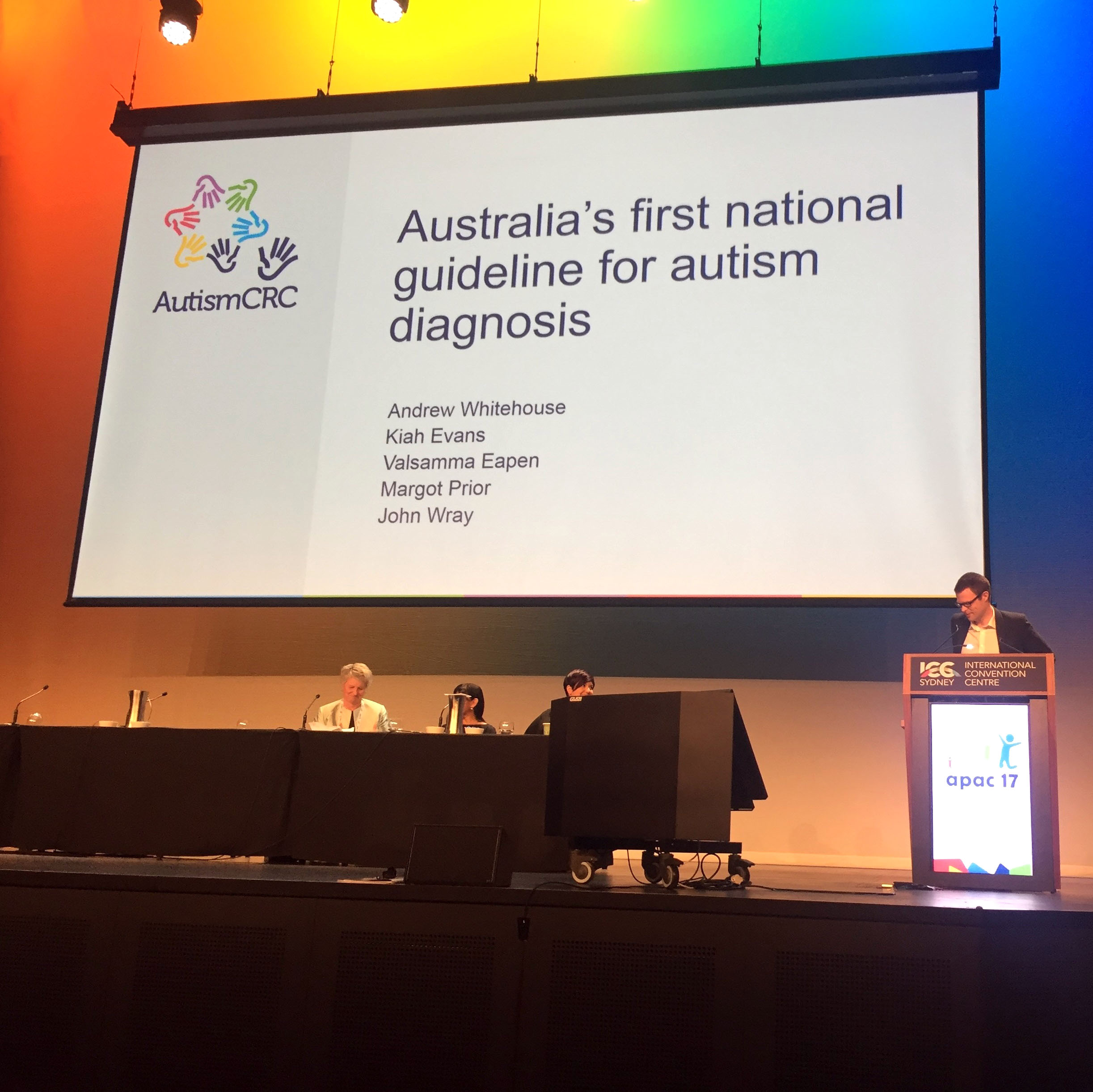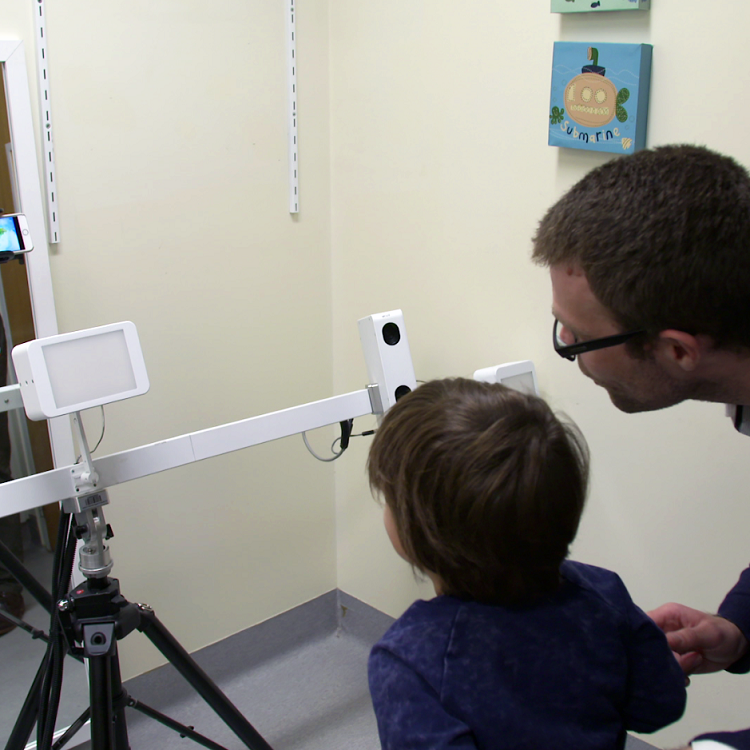Search
Research
Reliability, Validity and Acceptability of the PEDI-CAT with ASD Scales for Australian Children and Youth on the Autism SpectrumThe PEDI-CAT (ASD) is used to assess functioning of children and youth on the autism spectrum; however, current psychometric evidence is limited. This study aimed to explore the reliability, validity and acceptability of the PEDI-CAT (ASD) using a large Australian sample.
Research
Sex-Specific Effects of Birth Weight on Longitudinal Behavioral Outcomes: A Mendelian Randomization Approach Using Polygenic ScoresIt is unclear whether sex differences in behavior arising from birth weight (BW) are genuine because of the cross-sectional nature and potential confounding in previous studies. We aimed to test whether sex differences associated with BW phenotype were reproducible using a Mendelian randomization approach, i.e., association between polygenic score (PGS) for BW and behavior outcomes across childhood and adolescence.
Research
Co-design of the neurodevelopment assessment scaleNeurodevelopmental disorders (NDDs) have high comorbidity rates and shared etiology. Nevertheless, NDD assessment is diagnosis-driven and focuses on symptom profiles of individual disorders, which hinders diagnosis and treatment. There is also no evidence-based, standardized transdiagnostic approach currently available to provide a full clinical picture of individuals with NDDs. The pressing need for transdiagnostic assessment led to the development of the Neurodevelopment Assessment Scale.
Research
Low-intensity parent- and clinician-delivered support for young autistic children in Aotearoa New Zealand: a randomised controlled trialAotearoa New Zealand does not provide publicly-funded intensive autism support. While parent-mediated supports are promising, children and families may also benefit from direct clinician support. We tested the efficacy of a low-intensity programme involving parent- and clinician-delivered support for autistic children.
Research
Predictors of Change in Wellbeing and Mental Health of Parents of Autistic Pre-SchoolersParenting is a rewarding experience but is not without its challenges. Parents of Autistic children face additional challenges, and as a result can experience lower levels of wellbeing and more mental health problems (i.e., depression, anxiety, stress). Previous studies have identified concurrent correlates of wellbeing and mental health.
Research
Development of a Model of Care resource for FASD in the justice systemThis article describes the development of a Model of Care resource to support youth involved with the justice system where a neurodevelopmental disability such as Fetal Alcohol Spectrum Disorder is suspected. Service staff within the Youth Justice sector were engaged in an iterative process of resource development over a 9-month period.
Research
The use of psychotropic medications in autistic individuals (21 years and younger) in Western Australia: A preliminary investigationPrescriptions and use of medications to treat mental health conditions in young autistic populations are inconsistent worldwide. This makes it hard to compare findings from international studies to the Australian autistic population, where there are limited relevant studies. Apart from risperidone, there are no other medications specified for direct use in autistic persons. This study aims to gain initial broad understanding of the use of medications, commonly prescribed for mental health conditions, specifically by autistics under the age of 21 years.

News & Events
Australia’s first draft national guideline for autism diagnosis releasedAustralia’s first draft national guideline for autism diagnosis has today been released for public consultation.

News & Events
The Kids Research Institute Australia researcher awarded prestigious Eureka awardProfessor Andrew Whitehouse awarded the most prestigious award in the country for young researchers – the 3M Eureka Prize for Emerging Leader in Science.

News & Events
Computer algorithm links facial masculinity to autismA new study led by The Kids Research Institute Australia has found a link between masculine facial features and autism.
